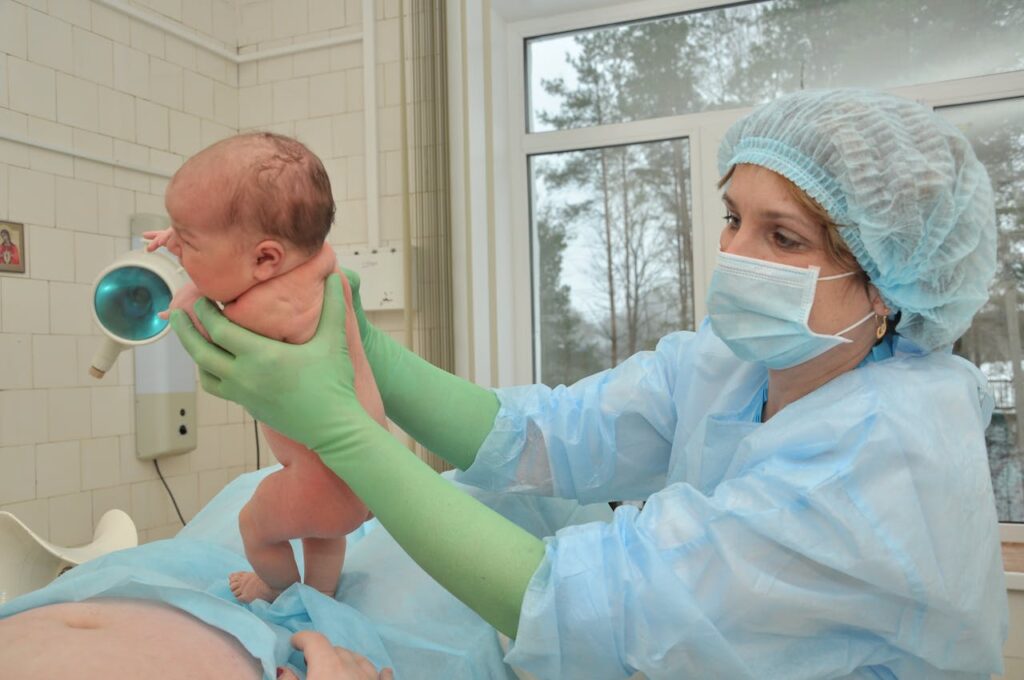IITHE Level 4 Diploma in Health and Social Care Management

Certified Nursing Assistant (CNA)

Overview:
The IITHE Level 4 Diploma in Health and Social Care Management is designed to provide learners with comprehensive knowledge and practical skills essential for managing and leading health and social care services. The qualification combines management principles with the practical aspects of care delivery, preparing learners for roles in various care settings.
This diploma also incorporates the Certified Nursing Assistant (CNA) program, ensuring that learners gain foundational nursing skills and are equipped to provide high-quality care in healthcare environments.
Entry Requirements:
- Typically aimed at learners aged 18 and above.
- Entry profile may include:
- Relevant Level 3 qualification or equivalent
- GCE Advanced Level in at least two subjects, or equivalent qualifications
- Mature learners (aged 21 and over) with relevant experience in health and social care (verification with the centre may be required)
English Requirements: Learners from non-majority English-speaking countries must provide evidence of English language proficiency. For more information, please refer to our English Language Requirements page.
Equivalences: The IITHE Level 4 Diploma in Health and Social Care Management is equivalent to Higher National Certificates (HNC) and the first year of a UK Bachelor’s degree in health and social care or related fields.
Qualification Structure: The diploma consists of 12 mandatory units, totaling 240 credits, with 2400 Total Qualification Time (TQT) hours and a minimum of 1200 Guided Learning Hours (GLH).
Mandatory Units:
- Principles of Health and Social Care Management (20 Credits)
Understanding key management principles, leadership strategies, and strategic planning in health and social care. - Managing Care Services (20 Credits)
Operational management of care services, including staffing, budgeting, and quality assurance. - Health and Social Care Policy and Legislation (20 Credits)
Overview of relevant policies, regulations, and legislation affecting health and social care. - Leadership and Team Management in Health and Social Care (20 Credits)
Leadership techniques and team management strategies within health and social care settings. - Quality Assurance and Improvement in Health and Social Care (20 Credits)
Methods for ensuring and improving care quality, including performance evaluation and improvement planning. - Supporting Individuals with Specific Needs (20 Credits)
Strategies for supporting individuals with special needs, including chronic illnesses, disabilities, and mental health conditions. - Introduction to Nursing Care (20 Credits)
Basics of nursing care, including patient interactions, care protocols, and fundamental nursing practices. - Clinical Skills for Nursing Assistants (20 Credits)
Development of practical skills required for clinical settings, including patient monitoring and assistance with daily activities. - Patient Communication and Support (20 Credits)
Effective communication techniques and methods for providing emotional support to patients. - Health and Safety in Care Settings (20 Credits)
Key health and safety practices, including infection control, risk management, and maintaining a safe care environment. - Ethical and Legal Considerations in Care (20 Credits)
Examination of ethical issues and legal requirements related to nursing and health care. - Assessment and Care Planning (20 Credits)
Techniques for assessing patient needs and developing individualized care plans to address those needs.
Duration and Delivery:
- Duration: Typically completed over two academic years for full-time learners, with flexible options for part-time or distance learning.
- Delivery Methods: The course is delivered through face-to-face lectures, tutorials, and seminars, as well as distance and online learning through approved centers.
Assessment and Verification:
- All units are internally assessed by the institution and externally verified by IITHE.
- Assessments are criterion-referenced, focusing on achieving the specified learning outcomes.
- Assessors provide a detailed audit trail to demonstrate learners’ fulfillment of assessment criteria.
Progression Opportunities:
Upon completion of the IITHE Level 4 Diploma in Health and Social Care Management, learners can progress to:
- IITHE Level 5 Diploma in Health and Social Care Management
- Further academic studies, such as a Bachelor’s degree in health and social care or related fields.
- Professional roles in health and social care management, including leadership and administrative positions.
Certified Caregiver

Overview:
The IITHE Level 4 Diploma in Health and Social Care Management is designed to provide learners with advanced knowledge and practical skills necessary for effective management in health and social care environments. This qualification includes comprehensive training for certified caregivers, equipping students with both management and hands-on caregiving skills to ensure high-quality care and efficient service delivery.
Entry Requirements:
- Typically aimed at learners aged 18 and above.
- Entry profile may include:
- Relevant Level 3 qualification or equivalent
- GCE Advanced Level in at least two subjects, or equivalent qualifications
- Mature learners (aged 21 and over) with relevant experience in health and social care (verification with the centre may be required)
English Requirements: Learners from non-majority English-speaking countries must provide evidence of English language proficiency. For more information, please refer to our English Language Requirements page.
Equivalences: The IITHE Level 4 Diploma in Health and Social Care Management is equivalent to Higher National Certificates (HNC) and the first year of a UK Bachelor’s degree in health and social care or related fields.
Qualification Structure: The diploma consists of 12 mandatory units, totaling 240 credits, with 2400 Total Qualification Time (TQT) hours and a minimum of 1200 Guided Learning Hours (GLH).
Mandatory Units:
- Principles of Health and Social Care Management (20 Credits)
Introduction to key management principles, strategic planning, and leadership in health and social care settings. - Managing Care Services (20 Credits)
Operational aspects of managing care services, including resource allocation, staffing, and quality management. - Health and Social Care Policy and Legislation (20 Credits)
Overview of policies, regulations, and legislation impacting health and social care, ensuring compliance and ethical practice. - Leadership and Team Management in Health and Social Care (20 Credits)
Effective leadership techniques and strategies for managing teams within care settings. - Quality Assurance and Improvement in Health and Social Care (20 Credits)
Methods for assessing and enhancing the quality of care services, including performance monitoring and improvement planning. - Supporting Individuals with Specific Needs (20 Credits)
Strategies for providing care to individuals with special needs, including those with disabilities, chronic conditions, and mental health issues. - Introduction to Caregiving (20 Credits)
Fundamental caregiving skills, including patient interaction, daily care routines, and understanding the caregiver’s role. - Clinical Skills for Caregivers (20 Credits)
Development of essential clinical skills for caregivers, such as patient monitoring, assistance with daily activities, and basic medical procedures. - Patient Communication and Support (20 Credits)
Techniques for effective communication with patients and providing emotional and psychological support. - Health and Safety in Care Settings (20 Credits)
Health and safety protocols in caregiving environments, including infection control, risk management, and maintaining a safe care setting. - Ethical and Legal Considerations in Care (20 Credits)
Examination of ethical issues and legal requirements related to caregiving and patient rights. - Assessment and Care Planning (20 Credits)
Methods for assessing patient needs, developing individualized care plans, and implementing effective care strategies.
Duration and Delivery:
- Duration: Typically completed over two academic years for full-time learners, with flexible options for part-time or distance learning.
- Delivery Methods: The course is delivered through face-to-face lectures, tutorials, and seminars, as well as distance and online learning through approved centers.
Assessment and Verification:
- All units are internally assessed by the institution and externally verified by IITHE.
- Assessments are criterion-referenced, focusing on achieving the specified learning outcomes.
- Assessors provide a detailed audit trail to demonstrate learners’ fulfillment of assessment criteria.
Progression Opportunities:
Upon completion of the IITHE Level 4 Diploma in Health and Social Care Management, learners can progress to:
- IITHE Level 5 Diploma in Health and Social Care Management
- Further academic studies, such as a Bachelor’s degree in health and social care or related fields.
- Professional roles in health and social care management, including leadership positions and administrative roles.
Certified Dental Assistant

Overview:
The IITHE Level 4 Diploma in Health and Social Care Management, with a focus on Certified Dental Assistant (CDA) training, is designed to provide learners with advanced knowledge and practical skills required for managing health and social care services, specifically within dental care settings. This qualification integrates comprehensive training for dental assistants, preparing students for effective roles in dental practices and clinics.
Entry Requirements:
- Typically aimed at learners aged 18 and above.
- Entry profile may include:
- Relevant Level 3 qualification or equivalent
- GCE Advanced Level in at least two subjects, or equivalent qualifications
- Mature learners (aged 21 and over) with relevant experience in health and social care (verification with the centre may be required)
English Requirements: Learners from non-majority English-speaking countries must provide evidence of English language proficiency. For more information, please refer to our English Language Requirements page.
Equivalences: The IITHE Level 4 Diploma in Health and Social Care Management is equivalent to Higher National Certificates (HNC) and the first year of a UK Bachelor’s degree in health and social care or related fields.
Qualification Structure: The diploma consists of 12 mandatory units, totaling 240 credits, with 2400 Total Qualification Time (TQT) hours and a minimum of 1200 Guided Learning Hours (GLH).
Mandatory Units:
- Principles of Health and Social Care Management (20 Credits)
Overview of management principles, leadership strategies, and strategic planning in health and social care settings. - Managing Care Services (20 Credits)
Operational management of care services, including staffing, budgeting, and ensuring quality care delivery. - Health and Social Care Policy and Legislation (20 Credits)
Key policies, regulations, and legislation affecting health and social care, focusing on compliance and ethical practice. - Leadership and Team Management in Health and Social Care (20 Credits)
Techniques and strategies for leading and managing teams in care settings effectively. - Quality Assurance and Improvement in Health and Social Care (20 Credits)
Methods for assessing and improving care quality, performance evaluation, and implementing improvement plans. - Supporting Individuals with Specific Needs (20 Credits)
Strategies for providing care to individuals with special needs, including disabilities, chronic conditions, and mental health issues. - Introduction to Dental Assisting (20 Credits)
Fundamentals of dental assisting, including the role of a dental assistant, patient interaction, and basic dental procedures. - Clinical Skills for Dental Assistants (20 Credits)
Development of practical skills specific to dental care, including assisting with dental procedures, infection control, and patient care. - Dental Radiography and Imaging (20 Credits)
Training in dental radiography techniques, including the use of X-rays, safety protocols, and interpreting radiographic images. - Patient Communication and Support in Dental Care (20 Credits)
Effective communication techniques and methods for providing emotional support to patients in a dental care setting. - Health and Safety in Dental Practices (20 Credits)
Health and safety protocols specific to dental practices, including infection control, risk management, and maintaining a safe working environment. - Ethical and Legal Considerations in Dental Care (20 Credits)
Examination of ethical issues and legal requirements related to dental assisting and patient rights.
Duration and Delivery:
- Duration: Typically completed over two academic years for full-time learners, with flexible options for part-time or distance learning.
- Delivery Methods: The course is delivered through face-to-face lectures, tutorials, and seminars, as well as distance and online learning through approved centers.
Assessment and Verification:
- All units are internally assessed by the institution and externally verified by IITHE.
- Assessments are criterion-referenced, focusing on achieving the specified learning outcomes.
- Assessors provide a detailed audit trail to demonstrate learners’ fulfillment of assessment criteria.
Progression Opportunities:
Upon completion of the IITHE Level 4 Diploma in Health and Social Care Management with a focus on Certified Dental Assisting, learners can progress to:
- IITHE Level 5 Diploma in Health and Social Care Management
- Further academic studies, such as a Bachelor’s degree in health and social care or related fields.
- Professional roles in dental assisting, including positions in dental clinics, hospitals, and other healthcare settings.

Certified Pharmacy Assistant
Overview:
The IITHE Level 4 Diploma in Health and Social Care Management, with a focus on Certified Pharmacy Assistant (CPA) training, provides learners with an advanced understanding of health and social care management, combined with specialized knowledge and skills required for effective pharmacy assistance. This qualification integrates essential training for pharmacy assistants, preparing students for roles in pharmacies and healthcare settings.
Entry Requirements:
- Typically aimed at learners aged 18 and above.
- Entry profile may include:
- Relevant Level 3 qualification or equivalent
- GCE Advanced Level in at least two subjects, or equivalent qualifications
- Mature learners (aged 21 and over) with relevant experience in health and social care (verification with the centre may be required)
English Requirements: Learners from non-majority English-speaking countries must provide evidence of English language proficiency. For more information, please refer to our English Language Requirements page.
Equivalences: The IITHE Level 4 Diploma in Health and Social Care Management is equivalent to Higher National Certificates (HNC) and the first year of a UK Bachelor’s degree in health and social care or related fields.
Qualification Structure: The diploma consists of 12 mandatory units, totaling 240 credits, with 2400 Total Qualification Time (TQT) hours and a minimum of 1200 Guided Learning Hours (GLH).
Mandatory Units:
- Principles of Health and Social Care Management (20 Credits)
Introduction to core management principles, strategic planning, and leadership within health and social care settings. - Managing Care Services (20 Credits)
Operational management techniques, including staffing, budgeting, and ensuring high-quality service delivery. - Health and Social Care Policy and Legislation (20 Credits)
Key policies, regulations, and legislation impacting health and social care, focusing on compliance and ethical practices. - Leadership and Team Management in Health and Social Care (20 Credits)
Leadership strategies and team management techniques for effective operation in care settings. - Quality Assurance and Improvement in Health and Social Care (20 Credits)
Methods for monitoring and enhancing the quality of care, including performance evaluation and implementing improvement plans. - Supporting Individuals with Specific Needs (20 Credits)
Techniques for providing care to individuals with disabilities, chronic conditions, and mental health issues. - Introduction to Pharmacy Assisting (20 Credits)
Overview of the role of a pharmacy assistant, including daily responsibilities, patient interaction, and basic pharmaceutical practices. - Pharmacy Clinical Skills (20 Credits)
Development of essential clinical skills for pharmacy assistants, such as medication preparation, dispensing procedures, and patient care. - Pharmacy Inventory and Management (20 Credits)
Skills for managing pharmacy inventory, including stock control, ordering, and maintaining accurate records. - Patient Communication and Support in Pharmacy (20 Credits)
Effective communication strategies and support methods for interacting with patients in a pharmacy setting. - Health and Safety in Pharmacy Practices (20 Credits)
Health and safety protocols specific to pharmacy environments, including infection control, risk management, and maintaining a safe working environment. - Ethical and Legal Considerations in Pharmacy (20 Credits)
Examination of ethical issues and legal requirements related to pharmacy practice and patient rights.
Duration and Delivery:
- Duration: Typically completed over two academic years for full-time learners, with flexible options for part-time or distance learning.
- Delivery Methods: The course is delivered through face-to-face lectures, tutorials, and seminars, as well as distance and online learning through approved centers.
Assessment and Verification:
- All units are internally assessed by the institution and externally verified by IITHE.
- Assessments are criterion-referenced, focusing on achieving the specified learning outcomes.
- Assessors provide a detailed audit trail to demonstrate learners’ fulfillment of assessment criteria.
Progression Opportunities:
Upon completion of the IITHE Level 4 Diploma in Health and Social Care Management with a focus on Certified Pharmacy Assisting, learners can progress to:
- IITHE Level 5 Diploma in Health and Social Care Management
- Further academic studies, such as a Bachelor’s degree in health and social care or related fields.
- Professional roles in pharmacy assisting, including positions in retail pharmacies, hospitals, and other healthcare settings.
Certified Patient Care Assistant

Overview:
The IITHE Level 4 Diploma in Health and Social Care Management with a focus on Certified Patient Care Assistant (PCA) training is designed to equip learners with advanced knowledge and skills necessary for managing health and social care services while specializing in patient care assistance. This qualification integrates comprehensive training for patient care assistants, preparing students for roles in various healthcare settings, including hospitals, clinics, and home care.
Entry Requirements:
- Typically aimed at learners aged 18 and above.
- Entry profile may include:
- Relevant Level 3 qualification or equivalent
- GCE Advanced Level in at least two subjects, or equivalent qualifications
- Mature learners (aged 21 and over) with relevant experience in health and social care (verification with the centre may be required)
English Requirements: Learners from non-majority English-speaking countries must provide evidence of English language proficiency. For more information, please refer to our English Language Requirements page.
Equivalences: The IITHE Level 4 Diploma in Health and Social Care Management is equivalent to Higher National Certificates (HNC) and the first year of a UK Bachelor’s degree in health and social care or related fields.
Qualification Structure: The diploma consists of 12 mandatory units, totaling 240 credits, with 2400 Total Qualification Time (TQT) hours and a minimum of 1200 Guided Learning Hours (GLH).
Mandatory Units:
- Principles of Health and Social Care Management (20 Credits)
Core management principles, leadership strategies, and strategic planning in health and social care settings. - Managing Care Services (20 Credits)
Operational management including staffing, budgeting, and ensuring the delivery of high-quality care services. - Health and Social Care Policy and Legislation (20 Credits)
Understanding key policies, regulations, and legislation affecting health and social care, focusing on compliance and ethical practices. - Leadership and Team Management in Health and Social Care (20 Credits)
Effective leadership techniques and strategies for managing teams within care settings. - Quality Assurance and Improvement in Health and Social Care (20 Credits)
Methods for assessing and improving care quality, performance monitoring, and implementing improvement strategies. - Supporting Individuals with Specific Needs (20 Credits)
Techniques for providing care to individuals with special needs, including those with disabilities, chronic conditions, and mental health issues. - Introduction to Patient Care Assistance (20 Credits)
Overview of the role of a patient care assistant, including daily responsibilities, patient interaction, and basic care techniques. - Clinical Skills for Patient Care Assistants (20 Credits)
Development of essential clinical skills such as patient monitoring, assistance with daily activities, and basic medical procedures. - Patient Communication and Support (20 Credits)
Effective communication strategies and support methods for interacting with patients and their families. - Health and Safety in Patient Care (20 Credits)
Health and safety protocols specific to patient care settings, including infection control, risk management, and maintaining a safe care environment. - Ethical and Legal Considerations in Patient Care (20 Credits)
Examination of ethical issues and legal requirements related to patient care, focusing on patient rights and confidentiality. - Care Planning and Documentation (20 Credits)
Techniques for assessing patient needs, developing individualized care plans, and maintaining accurate care documentation.
Duration and Delivery:
- Duration: Typically completed over two academic years for full-time learners, with flexible options for part-time or distance learning.
- Delivery Methods: The course is delivered through face-to-face lectures, tutorials, and seminars, as well as distance and online learning through approved centers.
Assessment and Verification:
- All units are internally assessed by the institution and externally verified by IITHE.
- Assessments are criterion-referenced, focusing on achieving the specified learning outcomes.
- Assessors provide a detailed audit trail to demonstrate learners’ fulfillment of assessment criteria.
Progression Opportunities:
Upon completion of the IITHE Level 4 Diploma in Health and Social Care Management with a focus on Certified Patient Care Assistance, learners can progress to:
- IITHE Level 5 Diploma in Health and Social Care Management
- Further academic studies, such as a Bachelor’s degree in health and social care or related fields.
- Professional roles in patient care assistance, including positions in hospitals, clinics, home care, and other healthcare settings.
Certified Massage Therapist

Overview:
The Certified Massage Therapist Level 4 qualification is designed for individuals who wish to advance their skills and knowledge in massage therapy. This course provides a comprehensive understanding of advanced massage techniques, client care, and the integration of massage therapy within a broader health and wellness context. It prepares learners for professional roles in various healthcare and wellness settings, equipping them with the skills to deliver high-quality therapeutic massage and client management.
Entry Requirements:
- Typically aimed at learners aged 18 and above.
- Entry profile may include:
- Relevant Level 3 qualification in Massage Therapy or equivalent
- GCE Advanced Level in relevant subjects or equivalent qualifications
- Prior practical experience or training in massage therapy (verification with the center may be required)
English Requirements: Learners from non-majority English-speaking countries must provide evidence of English language proficiency. For more information, please refer to our English Language Requirements page.
Qualification Structure: The Level 4 Diploma in Certified Massage Therapy consists of 12 mandatory units, totaling 240 credits, with 2400 Total Qualification Time (TQT) hours and a minimum of 1200 Guided Learning Hours (GLH).
Mandatory Units:
- Advanced Massage Techniques (20 Credits)
Exploration of advanced massage techniques including deep tissue massage, sports massage, and other therapeutic methods. - Anatomy and Physiology for Massage Therapy (20 Credits)
Detailed study of human anatomy and physiology relevant to massage therapy, including musculoskeletal and cardiovascular systems. - Client Consultation and Assessment (20 Credits)
Techniques for conducting thorough client consultations, assessing client needs, and developing personalized treatment plans. - Massage Therapy for Special Populations (20 Credits)
Approaches to providing massage therapy for specific populations, such as the elderly, pregnant women, and individuals with chronic conditions. - Health and Safety in Massage Therapy (20 Credits)
Health and safety protocols in massage therapy practice, including infection control, ergonomics, and maintaining a safe and hygienic treatment environment. - Ethical and Professional Standards in Massage Therapy (20 Credits)
Examination of ethical issues, professional standards, and client confidentiality in massage therapy practice. - Pathology for Massage Therapy (20 Credits)
Understanding common pathologies and conditions that may impact massage therapy, including contraindications and adaptations for treatment. - Massage Therapy Techniques for Pain Management (20 Credits)
Techniques and strategies for using massage therapy to manage and alleviate pain, including chronic and acute pain conditions. - Integrating Massage Therapy with Other Health Practices (20 Credits)
Understanding how to integrate massage therapy with other healthcare practices, such as physical therapy, chiropractic care, and holistic treatments. - Marketing and Business Skills for Massage Therapists (20 Credits)
Skills for effectively marketing a massage therapy practice, including business management, client acquisition, and professional networking. - Research Methods in Massage Therapy (20 Credits)
Introduction to research methodologies relevant to massage therapy, including evidence-based practice and critical appraisal of research. - Professional Development and Continuing Education (20 Credits)
Strategies for ongoing professional development, including continuing education, staying updated with industry trends, and enhancing professional skills.
Duration and Delivery:
- Duration: Typically completed over one academic year for full-time learners, with flexible options for part-time or distance learning.
- Delivery Methods: The course is delivered through face-to-face lectures, practical workshops, tutorials, and online learning through approved centers.
Assessment and Verification:
- All units are internally assessed by the institution and externally verified by the relevant accrediting body.
- Assessments are criterion-referenced, focusing on achieving the specified learning outcomes.
- Assessors provide a detailed audit trail to demonstrate learners’ fulfillment of assessment criteria.
Progression Opportunities:
Upon completion of the Certified Massage Therapist Level 4 qualification, learners can progress to:
- Advanced Specialist Certifications in massage therapy or related fields.
- IITHE Level 5 Diploma in Health and Social Care Management
- Further academic studies, such as a Bachelor’s degree in health and social care or related fields.
- Professional roles in advanced massage therapy, including positions in specialized clinics, wellness centers, and private practice.
Certified Nanny Professional

Overview:
The IITHE Level 4 Diploma in Health and Social Care Management – Certified Nanny Professional is designed to provide learners with a comprehensive understanding of both nannying and health and social care management. This qualification integrates core aspects of child development, care, and welfare with key management principles. It prepares individuals to become professional nannies equipped to provide quality care while understanding the broader context of health and social care.
Entry Requirements:
- Learners must be 18 years or older.
- A Level 3 qualification in a relevant field (such as childcare, health, or social care) is recommended.
- Basic competency in English language (reading, writing, and speaking).
- Relevant work experience in childcare or health and social care (optional but beneficial).
Qualification Structure:
The course consists of 12 mandatory units that cover essential aspects of child development, care, and health and social care management. Learners must complete all units to achieve the qualification.
Total Qualification Time (TQT):
- Total Qualification Time (TQT): 1,200 hours.
- Guided Learning Hours (GLH): 480 hours.
- GLH includes time spent in lectures, practical sessions, assessments, and supervised learning activities.
Mandatory Units (12 Units):
- Introduction to Health and Social Care Management (10 Credits)
- Overview of the health and social care sector and basic management skills.
- Child Development and Well-being (10 Credits)
- Understanding child development from birth to adolescence.
- Health and Safety in Childcare Settings (10 Credits)
- Ensuring a safe and secure environment for children.
- Supporting Children with Special Needs (10 Credits)
- Care strategies for children with disabilities and special needs.
- Nutrition, Health, and Hygiene (10 Credits)
- Planning balanced meals and promoting healthy habits.
- Behavioral Management and Positive Discipline (10 Credits)
- Techniques for managing challenging behaviors and fostering positive behavior.
- Educational and Recreational Activities for Children (10 Credits)
- Creating engaging and developmental activities for children.
- Communication with Parents and Guardians (10 Credits)
- Building effective communication and relationships with families.
- Cultural Awareness and Diversity in Childcare (10 Credits)
- Promoting inclusivity and cultural sensitivity in childcare.
- Health and Social Care Management Principles (10 Credits)
- Foundational management concepts relevant to health and social care.
- Professional Development for Nanny Professionals (10 Credits)
- Enhancing career prospects through professional growth and development.
- Ethical and Legal Considerations in Childcare (10 Credits)
- Understanding safeguarding policies and child protection laws.
Key Outcomes:
Upon successful completion of this course, learners will be able to:
- Understand the developmental, health, and social care needs of children.
- Ensure the physical and emotional well-being of children in their care.
- Implement effective health and safety protocols.
- Plan and manage nutritious meals and educational activities.
- Communicate effectively with parents, guardians, and health professionals.
- Apply management and leadership principles in childcare settings.
- Work in diverse cultural and social environments, respecting differences.
- Pursue further qualifications or career progression in childcare or health and social care management.
Duration and Delivery:
- Duration: Typically completed in 12–18 months.
- Delivery Mode:
- Blended Learning: A combination of online modules and in-person workshops.
- Practical Training: Includes supervised childcare practice sessions.
Assessment and Verification:
- Assessment Methods:
- Assignments
- Case studies
- Practical assessments
- Portfolios of evidence
- Verification: Internal verification by tutors, with external verification conducted by the awarding body to ensure assessment integrity.
Progression Opportunities:
Graduates of the IITHE Level 4 Diploma in Health and Social Care Management – Certified Nanny Professional can progress to:
- Level 5 Diploma in Health and Social Care Management.
- Level 5 Diploma in Childcare or Early Childhood Education.
- Advanced roles in childcare, such as Senior Nanny or Childcare Manager.
- Opportunities in health and social care management positions.
- Further studies in Early Childhood Education or Healthcare.
Graduates will be equipped to work as Certified Nanny Professionals in diverse environments, including private households, educational institutions, and healthcare settings, with opportunities for leadership roles in child development and care management.
Internationally Certified Midwife

Overview:
The IITHE Level 4 Diploma in Health and Social Care Management – Internationally Certified Midwife is a comprehensive program designed for individuals seeking to pursue a career in midwifery while gaining foundational skills in health and social care management. This qualification equips learners with essential knowledge about maternal and child healthcare, while also providing a strong understanding of management principles in health and social care environments. Graduates will be able to provide high-quality maternal care and support for mothers and newborns, with an international certification that enhances career opportunities globally.
Entry Requirements:
- Learners must be at least 18 years old.
- Prior knowledge or qualification in health and social care (Level 3) is recommended but not mandatory.
- Basic competency in English (reading, writing, and speaking).
- Relevant work or voluntary experience in maternal health or healthcare is beneficial but not required.
Qualification Structure:
The diploma consists of 12 mandatory units that cover key aspects of midwifery practice, maternal health, and management in health and social care settings. All units must be completed to earn the diploma.
Total Qualification Time (TQT):
- Total Qualification Time (TQT): 1,200 hours.
- Guided Learning Hours (GLH): 480 hours.
- Includes lectures, workshops, practical training, and supervised study.
Mandatory Units (12 Units):
- Introduction to Midwifery and Maternal Health (10 Credits)
- Overview of midwifery roles and responsibilities.
- Understanding maternal health and pregnancy stages.
- Health and Safety in Maternity Care (10 Credits)
- Best practices for ensuring safety in pregnancy and childbirth.
- Implementing safe working practices in maternity settings.
- Antenatal Care and Education (10 Credits)
- Providing prenatal care and guidance to expectant mothers.
- Preparing women physically and mentally for childbirth.
- Labor and Delivery (10 Credits)
- Assisting with labor and delivery.
- Managing childbirth complications and emergencies.
- Pain management and supportive care during childbirth.
- Postnatal Care (10 Credits)
- Caring for mothers and newborns after delivery.
- Addressing postnatal health concerns and breastfeeding support.
- Child Development and Neonatal Care (10 Credits)
- Monitoring newborn health and development.
- Neonatal care and handling early complications in newborns.
- Nutrition and Health for Mothers and Infants (10 Credits)
- Nutritional needs during pregnancy and breastfeeding.
- Promoting healthy diets for mothers and infants.
- Behavioral Support and Mental Health for Mothers (10 Credits)
- Addressing maternal mental health issues (e.g., postpartum depression).
- Emotional support strategies for new mothers.
- Communication and Counseling for Midwives (10 Credits)
- Effective communication with mothers, families, and healthcare teams.
- Counseling skills to support emotional well-being during pregnancy and childbirth.
- Legal and Ethical Issues in Midwifery (10 Credits)
- Understanding legal requirements and professional codes of conduct.
- Ethical considerations and informed consent in maternity care.
- Health and Social Care Management Principles (10 Credits)
- Applying management concepts in healthcare settings.
- Leading maternity care teams and coordinating care services.
- Professional Development in Midwifery (10 Credits)
- Building a career as an internationally certified midwife.
- Continuing professional education and lifelong learning in midwifery.
Key Outcomes:
By completing the IITHE Level 4 Diploma in Health and Social Care Management – Internationally Certified Midwife, learners will be able to:
- Provide high-quality, professional maternity care from prenatal through postnatal stages.
- Assist with labor and delivery, ensuring safe childbirth practices.
- Offer expert neonatal care and support child development in early stages.
- Develop strong communication and counseling skills to support mothers and families.
- Understand and implement legal and ethical standards in midwifery.
- Apply health and social care management skills in healthcare settings.
- Pursue career opportunities globally as an internationally certified midwife.
Duration and Delivery:
- Duration: The program typically lasts 12-18 months.
- Delivery Mode:
- Blended Learning: Combines online modules with in-person practical sessions.
- Clinical Placements: Practical training in hospitals or maternity clinics is an essential component of the course.
Assessment and Verification:
- Assessment Methods:
- Written assignments.
- Case studies and practical assessments.
- Portfolios of evidence showcasing competency in midwifery.
- Verification:
- Internal verification by qualified tutors and external verification by the awarding body to ensure that assessments meet professional standards.
Progression Opportunities:
Upon completing the diploma, learners can progress to:
- Level 5 Diploma in Health and Social Care Management or Midwifery Studies.
- Bachelor’s Degree in Midwifery or related healthcare fields.
- Advanced Roles in midwifery such as Senior Midwife, Maternity Unit Manager, or Childbirth Educator.
- Opportunities to work internationally as a certified midwife in hospitals, healthcare institutions, and private practice.
This qualification not only prepares learners for midwifery roles but also provides management skills that can enhance career growth in both clinical and healthcare management sectors.
